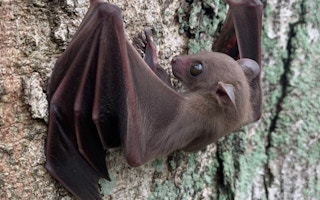A new investment firm is launching to help scale up biodiversity conservation projects in Indonesia.
To continue reading, subscribe to Eco‑Business.
There's something for everyone. We offer a range of subscription plans.
- Access our stories and receive our Insights Weekly newsletter with the free EB Member plan.
- Unlock unlimited access to our content and archive with EB Circle.
- Publish your content with EB Premium.
Called Terratai – which means Lotus flower in Bahasa Indonesia – the firm aims to address a perceived gap in the conservation finance ecosystem in Asia.
Too many conservation projects do not fulfill their potential because non-government organisations lack the capacity and banks lack expertise in conservation, according to Terratai chief executive Matthew Leggett.
“So many NGO-led biodiversity projects die after three years, because they are unable to take market-based ideas to scale,” Leggett told Eco-Business.
“It’s relatively easy to start a company that produces boutique nature-sensitive coffee that sells for a premium in Europe. But that’s like laser surgery on the problem. What we need is radiotherapy across the system,” he said.
An estimated US$700 billion in investment is needed annually to address the biodiversity crisis and restore degraded ecosystems. Asia has lost about a half of per cent of its natural capital over the last half-century, according to WWF’s recent Living Planet report.
Terratai, which Leggett describes as a “venture builder for nature”, provides early-stage finance, strategy advice and nature-based solutions expertise to businesses operating in at-risk land and seascapes. The firm aims to fill the “missing middle” in conservation finance, Leggett said.
The Bali-based firm launches with funding support from Hong Kong-based family office RS Group, with an initial focus on Indonesia. Joining Leggett as Terratai’s chief investment officer is Yuni Choi from RS Group.
Legget said he aims to work with six to eight seed or pre-seed startups within the first three years of operation, and is ultimately looking to expand the business to Malaysia, Thailand and elsewhere in Southeast Asia.
He launches Terratai after eight years with conservation non-profit Wildlife Conservation Society (WCS), where he ran the private sector engagement team, based in Singapore.
WCS’ Ibis Rice project in Cambodia, which has been running since 2009, is an example of a successful private sector conservation project in Asia that has been consistently funded over time, said Leggett.
Terratai emerges the month after an agreement was reached at the United Nations’ COP15 Biodiversity Summit in Montreal, Canada, to protect 30 per cent of the planet’s land and 30 per cent of its ocean by 2030, among other targets.












